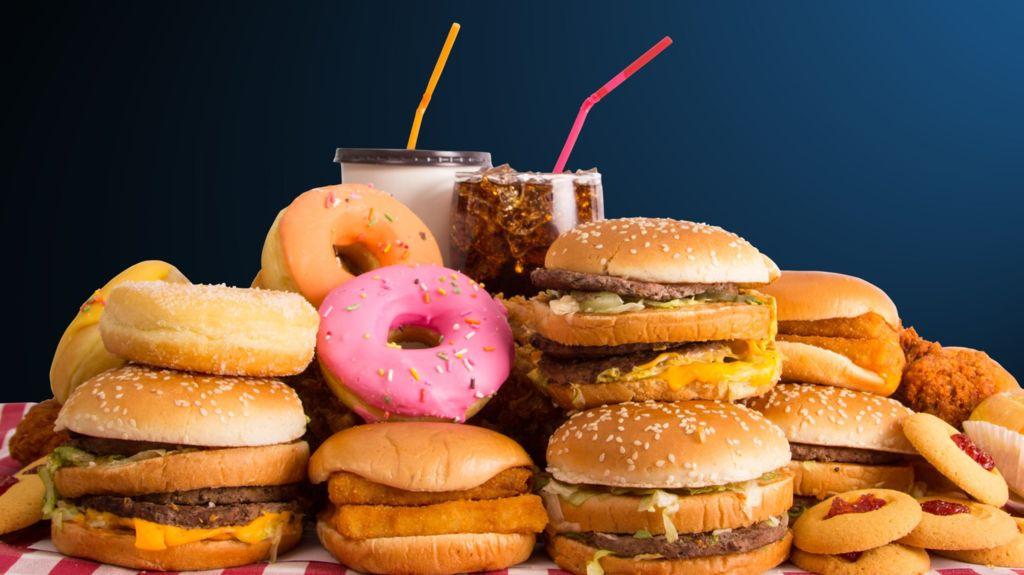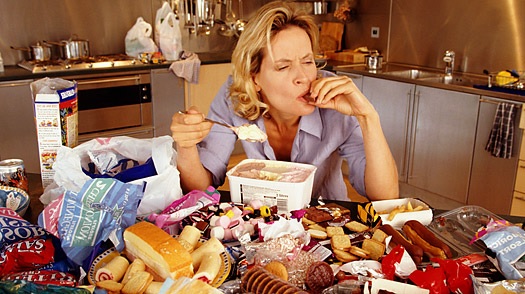Lose Weight Fast—Here's a Scientific Way to Control Your Food Cravings
No more random trips to the fridge!

Counting calories on an app, scanning through a plethora of websites to find the 'right' food that will catalyse weight loss, gazing wistfully at the brightly illuminated dessert counter at your fave bakery—you know you've done it all.

With this new fitness rage that is spreading like an epidemic, even though it is in best interests for everyone's health in the long run—seems to be stressing out folks who are unable to manoeuvre their way around it. Tonnes of people struggle to curb their food cravings, or go on a 'diet' to maintain a healthy body weight.
The right balance of physical exercise and a protein-rich, low-carb diet is imperative to drop kilos by the scale—but how many of us are able to stick to that meticulously planned diet chart that is stuck on the refrigerator with a kitchen magnet?
You either slip into depression by perpetually depriving yourself of your favourite food, or you give into the temptation and jump headlong into a full-on binge-fest! Result? That annoying needle on the scale doesn't move an inch to the left.
What if we tell you that there's a third way out? Understanding your body, and the science behind food-cravings is deffo an easier way to deal with this situation, and keep the stress that it entails—at bay.
Why is it that despite a rock-solid determination, dieting is such a mammoth task? Why exactly are we unable to control cravings?
1. Tackling Food Cues
When you drool over something, you couldn't care less about its nutritional value or calorie content. You simply crave it. That's because such sensory food cues are rather difficult to side-step. While many blame taste and smell, the real deal-breakers are—advertising or brand logos.

Scientifically speaking—when you're hungry, the hormone 'gherlin' is released which stimulates the brain, and makes us notice food. Many researchers claim that when we are hungry, the brain pays more attention to unhealthy foods that are abundant in sugar and fat, as opposed to its healthier counterpart. In fact, several studies have shown that high-cal foods elicited anticipatory responses like salivation, cravings and desire when their picture was shown to a group of participants. All in all, it is the eye-catching properties of unhealthy calorie-rich food that make it difficult to ignore them, especially for people who relish them but are attempting to abstain from them.
But on the flip side, if we are able to understand that it's just our mind playing hormone-induced tricks—and that we can totally train it to ignore these foods—there's a chance that we can overcome cravings.
2. The Forbidden Fruit
Remember that time as a kid when you would want only that toy which you were denied? Or when you're sick and all you can think of is that icy cold popsicle which will screw up your sore throat? There's a pretty simple logic behind it. Whenever we 'give up' something we enjoy otherwise, we tend to crave it even more than when we had easy access to it.

In a study, frequent consumers of chocolate were asked to abstain from it for a week. During that tenure, participants found images of chocolate and other high-cal food more salient—blame deprivation! To add to that, when we consume something we have deprived ourselves of, we tend to over-indulge involuntarily and binge on more calories than we would ordinarily.
All of this means that even when dieters attempt to avoid foods that are pleasurable, the response to deprivation may inadvertently be creating more temptation. So folks, instead of giving in to temptations—avoid them in the first place!

3. The "what-the-hell" effect
One major flaw with a rigorous diet plan that renders it redundant in the long run is, that any eating behaviour that does not rely on the physiological signals of hunger, increases the risk of overeating.
A phenomenon termed as the "what-the-hell-effect" by researchers has been demonstrated in various lab experiments. Even a small violation from the set diet—does more damage psychologically than it does physiologically—but that ultimately leads to binging.

Even though, realistically speaking, a few extra calories ingested won't have a major impact overall, but this dieting "failure" triggers negative emotions like guilt and stress—which result in overeating!
Essentially, a diet which is wayyy too rigid, or forbidding in nature is problematic—as it paradoxically increases the risk of over-eating. Instead, understanding how the brain works, and recognising the psychological effects of dieting will help curb cravings better.
So take it easy, and eat your way to a healthy YOU. But, do it wisely!
more from Life

Can a sunshine folder help cure your imposter syndrome?

Bedtime wellness rituals that will help you sleep like a baby

What an eight-year age gap with my sibling taught me

Signs that you’re walking on eggshells in your relationship

Will kitchen raves be the new dining trend this summer?

I switched multiple jobs until I found the career I was meant for and that's okay

The finest eateries across Mumbai, Goa, Hyderabad, Bengaluru, Delhi, and Pune

Here's breaking down Beyoncé's haircare routine and it's simpler than we imagined

Amidst uncertainties of life, here's how crocheting healed me

How skincare date nights with boo can bring you closer
